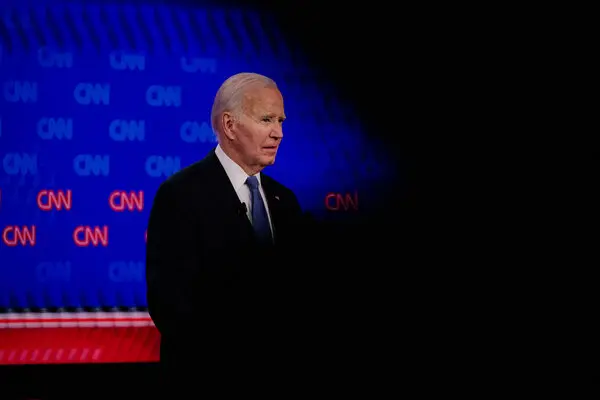Wissal Khlifi, Department of translation and interpretation.
5,7,2024
As the 2024 presidential election approaches, speculation continues to swirl around the potential candidates. One figure at the center of this discourse is President Joe Biden. Despite various challenges, there are compelling reasons why Biden is not expected to withdraw from the race.
1. Commitment to the Presidency
Joe Biden has consistently demonstrated a strong commitment to his role as President. His tenure has been marked by significant legislative achievements, including the American Rescue Plan, the infrastructure bill, and initiatives aimed at combating climate change. Biden’s administration has also faced challenges such as the COVID-19 pandemic and economic recovery, where his leadership has been pivotal. This dedication to his policies and the vision he has for the country suggests that he remains determined to see his agenda through to its completion.
2. Party Support and Unity
Biden enjoys substantial support within the Democratic Party. Party leaders, lawmakers, and grassroots activists have rallied behind him, recognizing the importance of maintaining party unity. With the midterms showing a mixed result, the Democratic establishment sees Biden as a stabilizing figure who can bridge the gap between different factions within the party. His experience and political acumen are seen as invaluable assets in a potentially contentious election cycle.
3. Historical Precedent and Age Considerations
Historically, incumbents have often sought re-election, leveraging the advantages of the office. Biden, at 80, is not the first president to face questions about age and capacity. His campaign has actively addressed these concerns, emphasizing his health and vigor. Additionally, the experience and wisdom gained over decades of public service are viewed as strengths that could be decisive in the complexities of modern governance.
4. Electoral Strategy and Challenges for Opponents
From a strategic standpoint, withdrawing would leave the Democratic Party without a clear standard-bearer, potentially creating a power vacuum. Biden’s incumbency provides him with substantial advantages, including the ability to mobilize resources, command media attention, and maintain a robust campaign infrastructure. Furthermore, facing a unified Republican opposition, the Democratic Party is likely to benefit from Biden’s established position and policy platform, which have resonated with a broad spectrum of voters.
5. Public Sentiment and Political Capital
Public opinion remains a critical factor. While Biden’s approval ratings have fluctuated, many voters continue to support his administration’s core policies. Additionally, the political capital accumulated over his tenure is not negligible. Biden’s ability to connect with working-class Americans, his emphasis on social justice, and his stance on international affairs continue to garner support across diverse demographic groups.
6. Personal and Political Legacy
For Biden, the 2024 election is not just about continuing his presidency but also about shaping his legacy. He has outlined ambitious goals for his second term, from expanding healthcare access and strengthening social safety nets to advancing civil rights and climate action. The desire to leave a lasting impact on the nation’s future is a strong motivator that makes withdrawal an unlikely option.
In conclusion, while the dynamics of any presidential race are subject to change, President Biden’s decision to stay in the race is driven by a combination of commitment, support, strategic advantages, and a clear vision for the country’s future. As the election cycle unfolds, these factors will continue to play a crucial role in shaping the political landscape.

